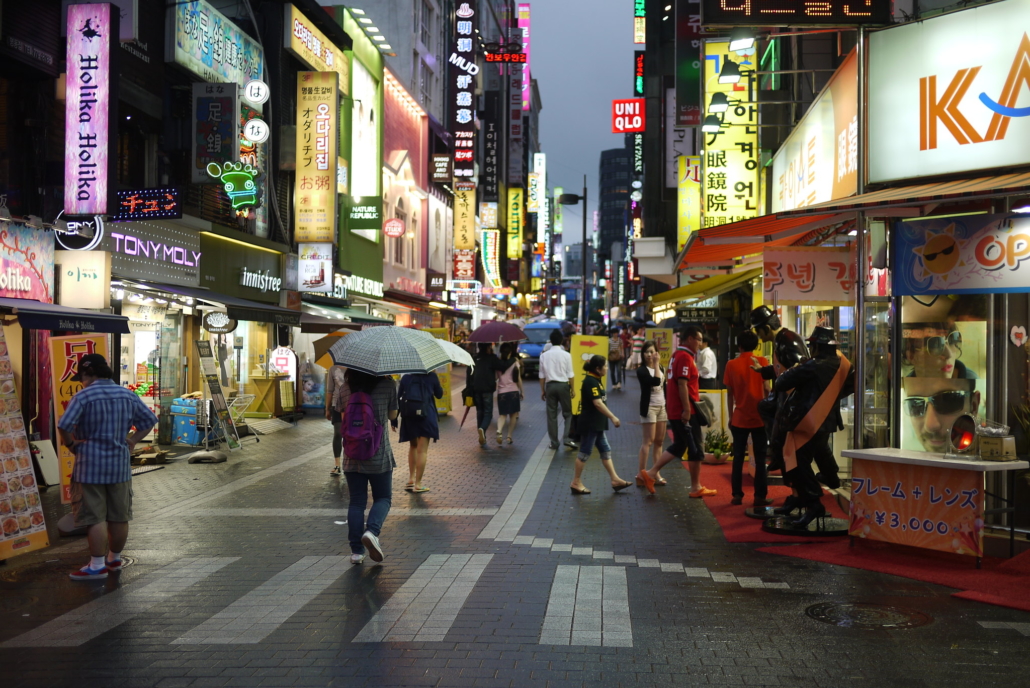“Extraordinary Attorney Woo” Sheds Light on Disabilities in South Korea

The Korean drama, or K-Drama, “Extraordinary Attorney Woo,” reached both domestic and global popularity since its debut on June 29, 2022. Between July 25 and July 31, the drama noted more than 65.63 million streaming hours. This K-drama follows the life of an autistic genius, Woo Young-woo, as she juggles her career as a rookie attorney and faces discrimination in the workplace and her personal life. Slowly, as she tackles one case after another, her colleagues begin to accept her and her autism. “Extraordinary Attorney Woo” sheds light on an important issue in South Korea: Disabled people need more support.
Disabled People in South Korea
More than 2.6 million individuals (5%) of South Korea’s population in 2022 are registered as disabled people, but despite this large number, disabled people face persistent barriers and discrimination in transportation, schools and the workplace.
“Extraordinary Attorney Woo” particularly highlights the difficulties Woo endured while trying to secure employment and the discrimination she faced in the workplace. This is a reality for many disabled people in South Korea. Disabled people are also at a higher risk of poverty due to barriers in the workplace, such as a lack of disability facilities.
Although South Korea’s government aimed to increase fair work opportunities for disabled people, the employment rate among people with disabilities stood at 34.5% in 2019, which is significantly lower than South Korea’s national employment rate average of 60.9%. Inadequate accommodation for disabled people in the workplace, “such as wheelchair ramps and accessible toilets,” presents barriers to securing or maintaining employment, which is key to economic security. However, for a majority of disabled people, securing employment is limited due to a lack of disability-friendly facilities and structures.
Additionally, disabled people in South Korea also have limited access to education. Despite more than 98,000 students meeting the eligibility requirements for “special education” in 2021, less than 28% of them attended specialized schools for students with disabilities and the others studied in “special education classes” in traditional schools. However, disabled students in traditional schools are subject to “bullying and condescension.” Moreover, traditional school designs do not account for the needs of disabled students.
Progress for Disabled People in South Korea
“Extraordinary Attorney Woo” depicts a relatively more accepting work environment that is not far from reality. In 2017, 80% of disabled people reported facing discrimination, but in 2021, the figure has fallen to almost 66%. South Korea has made many leaps in progress to bring equality to disabled people.
Advocacy is key to bringing change for disabled people as protests and movements led the government to pass many pieces of legislation. For instance, the 2005 Act on Promoting Transportation Convenience for Mobility Disadvantaged Persons mandated the accommodation of disabled people in public transportation through special customizations. In 2007, through legislation, South Korea prohibited the discrimination of disabled persons.
Moreover, South Korea has law firms that have a disability as a practice area, allowing disabled people to secure their rights. Public interest law firms such as Gonggam, engage in and finance disability rights advocacy. Furthermore, the Korea Disability Law Association “published a manual on disability rights for lawyers and judges in 2013.” Such support for disabled people from institutions “bolsters policy implementation” and strengthens “disability-related governance.”
In the show, “Extraordinary Attorney Woo,” Woo stood as a harbinger of change as she made others realize their discriminatory perspectives. Similarly, self-advocacy by disabled people was pivotal in bringing change and expanding the rights of disabled people in South Korea. Although “Extraordinary Attorney Woo” highlights South Korea’s shortcomings in disability support, South Korea has been increasingly making progress in recognizing the rights of people with disabilities. With legal institutions and advocates stepping up, disabled people can participate in society more fully and rise up out of poverty.
– Samyukta Gaddam
Photo: Flickr
